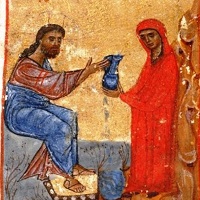
The encounter between Jesus and the Samaritan woman at the well is instructive at so many levels.
Typical of St John the Evangelist, the dialogue drips with confusion, double meanings and social comment.
The woman and Jesus are at cross purposes about water, wells, thirst, gifts and life.
Their encounter challenges social conventions and steps over boundaries that good society thought necessary. In fact, “God-given” as if God is the giver of social conventions that separate people based on ethnicity, culture or religion.
Humans nurture the human constructs of divisions used in our society for their ends, but God often gets the blame! It is the practice of childish people to blame others for their misfortune when they have played some role in it.
The themes of division in the dialogue between Jesus and the Samaritan woman disappear once the conversation turns to the person of Jesus, the nature of redemption and the place of worship. The battle of wills in the first part of the conversation then becomes a contemplation of what joins them as believers—the search to worship in spirit and truth.
The search for worship in spirit and truth replaces the conflict over whose mountain is higher, better, more important or more holy. It makes it possible for believers to join in prayer and for nations and individuals to seek peace together.
Arguing over whose mountain is bigger or holier, whose culture is more critical or whose language defines the meaning of life are all, in the end, meaningless. Mountains crumble into the sea, cultures come to an end and languages die out. The point is not to do nothing but to do everything with the awareness that we live in a passing world.
Jesus is the gift-giver who gives gifts that have their origin in God. This scripture is given this Sunday, especially for Catechumens nearing the Easter Vigil, baptism, confirmation, and the first Eucharist. It asks of them—and us—to consider faith as a conversation of encounter, not with the idea of Jesus, but with the person of Jesus.
The motif of saving water that wells up to eternal life is not so much about the water in the font, but the person of Jesus ‘who is speaking to you’.
Lent offers us the opportunity to consider the relationship we have with God in Christ.
Fr Joe


